Russia is trumping up criminal cases against journalists in Crimea – Viktoria Nesterenko’s speech in Riga
Russia is trumping up criminal cases against civilian journalists in Crimea, which is the most dangerous trend in the occupied peninsula. This was stated in Riga at the Third Parliamentary Summit of the International Crimean Platform by Viktoria Nesterenko, Project Manager of Human Rights Centre ZMINA. Deprivation of liberty, persecution, torture, inhuman treatment in places of detention, and punitive action are what Crimean residents who do not support the actions of the Russian authorities face. Russia has also started to use punishment for “discrediting” the Russian army more severely. In less than two years, 15 court decisions have been made in such cases.
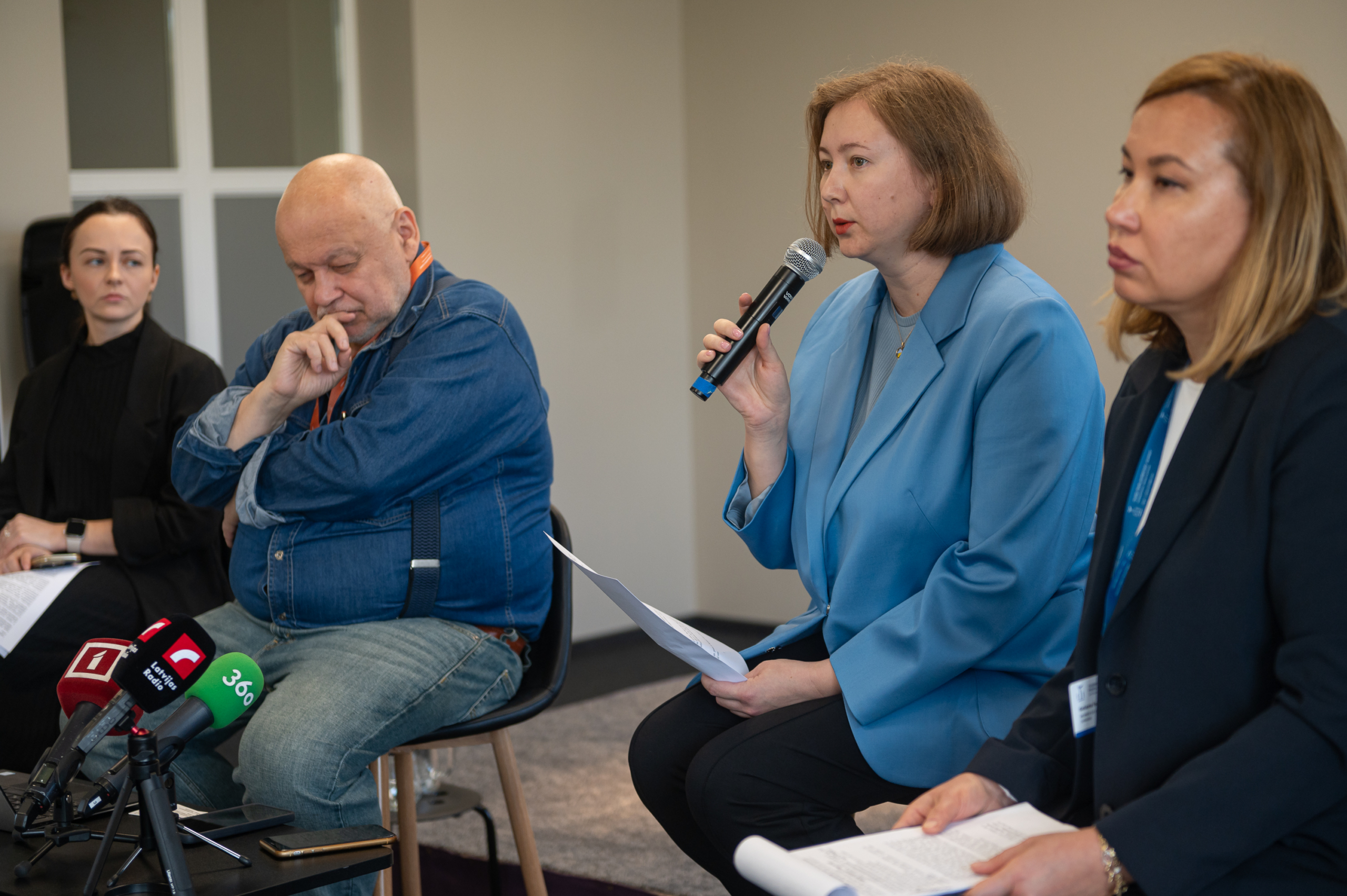
“The fact that the world hardly hears about the human rights situation in Crimea and the repressions that are taking place there indicates that the occupiers’ policy of suppressing freedom of speech in Crimea is working. The world should look for innovative instruments of influence and response to prevent the complete elimination of the independent information space on the peninsula,” said Viktoria Nesterenko, representative of Human Rights Centre ZMINA.
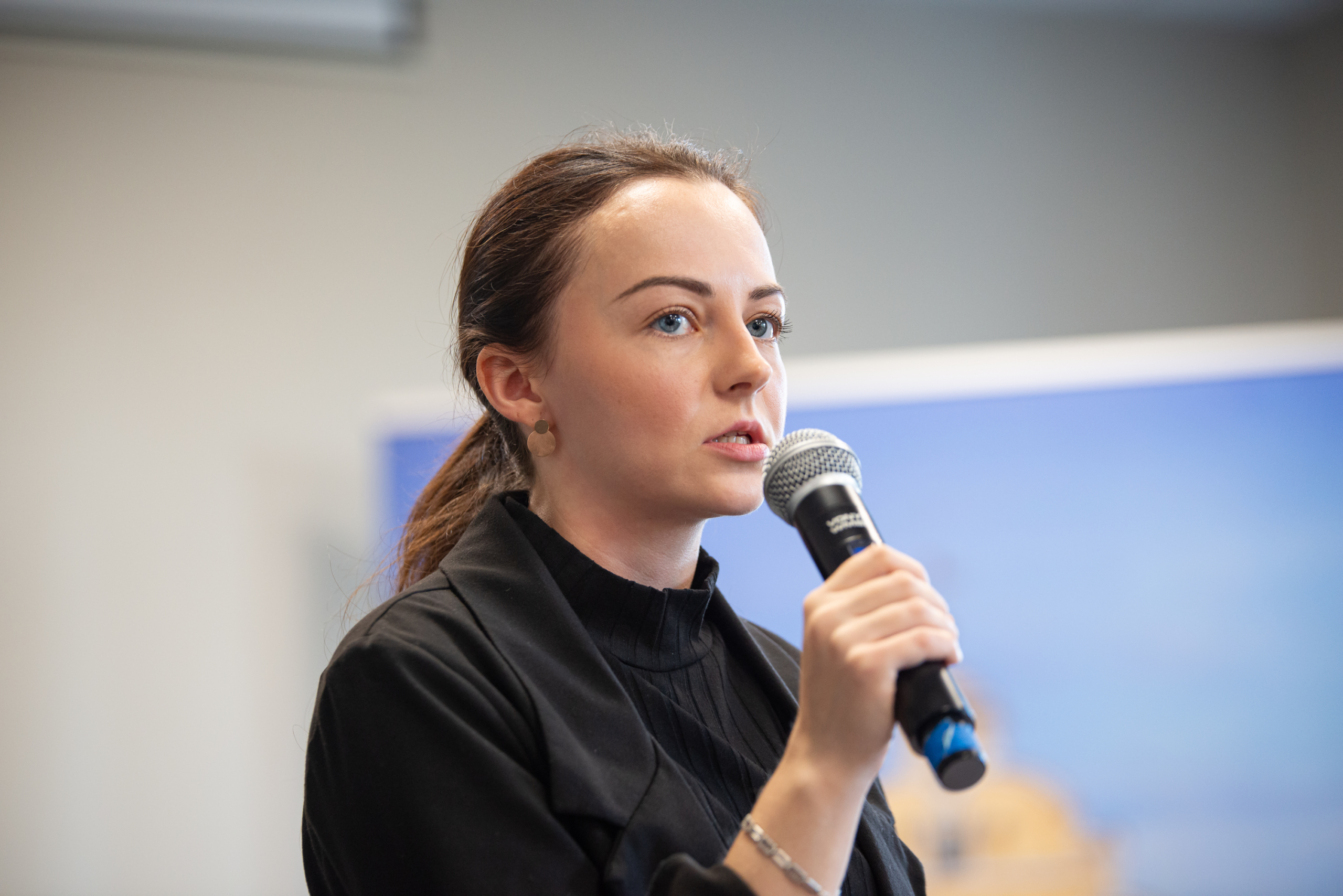 Viktoria Nesterenko
Viktoria NesterenkoAmong the newly imprisoned since the beginning of the full-scale invasion are civilian journalist Iryna Danylovych and three correspondents of the Crimean Solidarity Association who streamed court hearings – Vilen Temerianov, Aziz Azizov and Rustem Osmanov, with Temerianov and Azizov being accused of trumped-up terrorism charges.
A total of 18 Crimean journalists are in prison, with most of them being deported to prisons in Russian territory.
“It is very important to pay attention to the conditions of detention of political prisoners. Imprisoned journalists often face torture and inhumane treatment in places of detention, they are placed in penal cells, they do not have access to medical care. This is a big problem, especially when political prisoners are deported from Crimea to the territory of Russia, where their relatives and lawyers do not have constant access to them. Another problem is the exchange of people between Ukraine and Russia, Russia has refused to return Crimean political prisoners, and only 2 political prisoners have been released recently, including Mejlis representative Nariman Dzhelyal. Therefore, we must make every effort to release and return these people home,” Viktoria Nesterenko said at the conference.
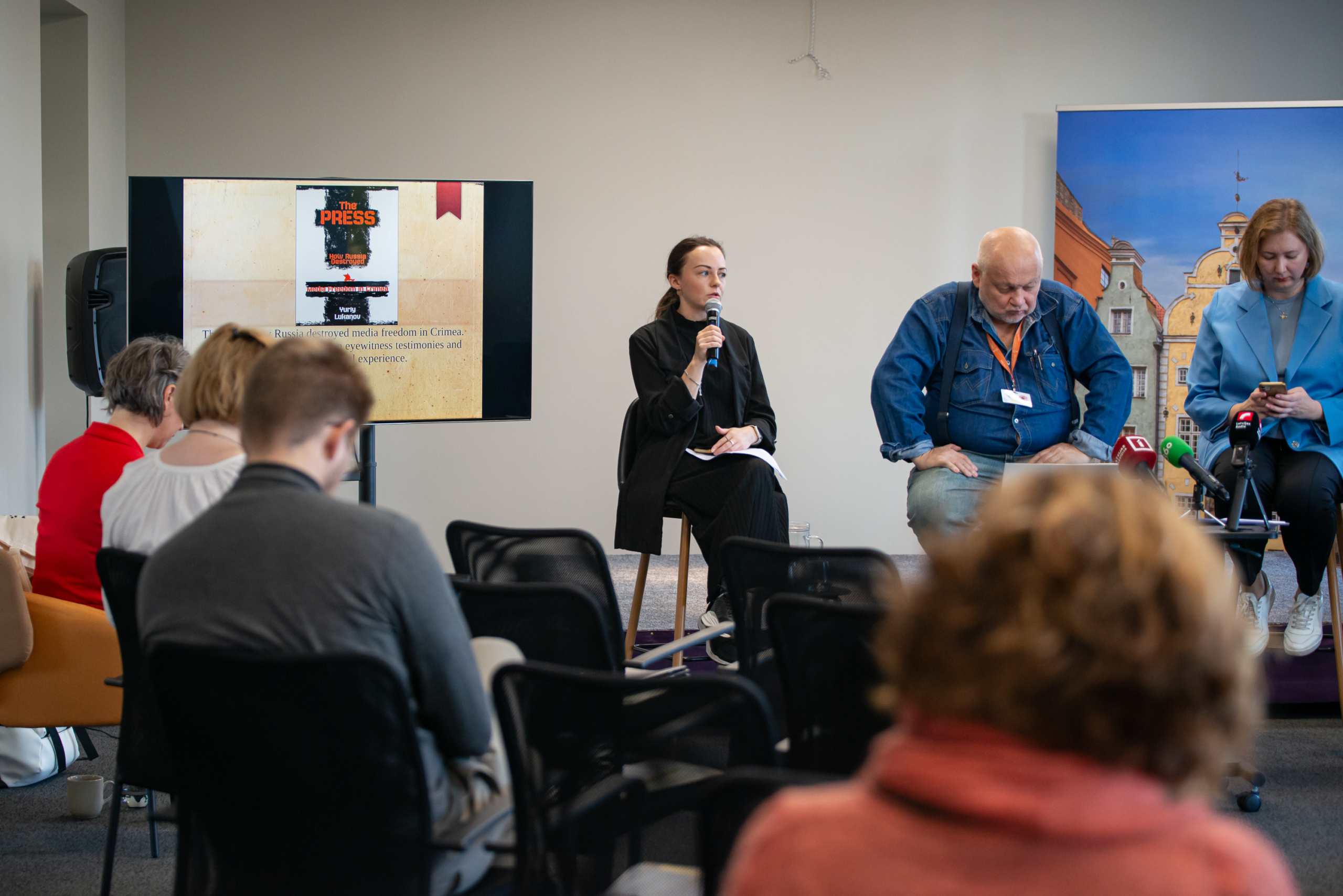
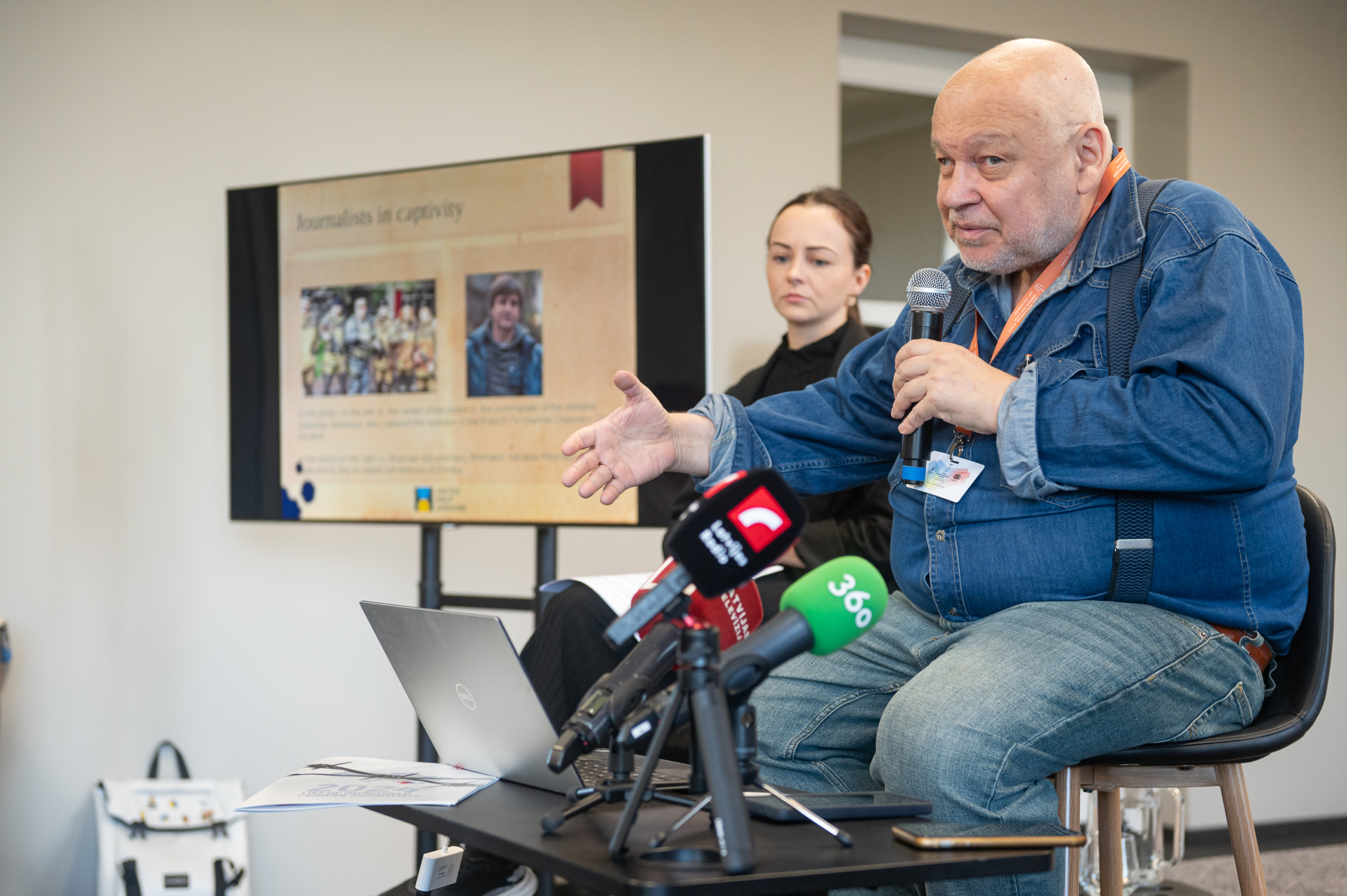 Yurii Lukanov
Yurii LukanovLukanov noted that the conditions when professional media specialists are unable to carry out their activities, the phenomenon of citizen journalists has emerged in the occupied Crimea.
Skrypnyk mentioned those who are behind bars and have serious health problems; in particular, Akhmet Suleimanov, Iryna Danylovych, Rustem Huhuryk, Oleksandr Sizikov and others.
Haiana Yuksel stressed two more dangerous trends observed in Crimea during the occupation: the imposition of the idea that this territory has always belonged to the Russian Federation and the massive militarization of the peninsula, particularly of children and teenagers.
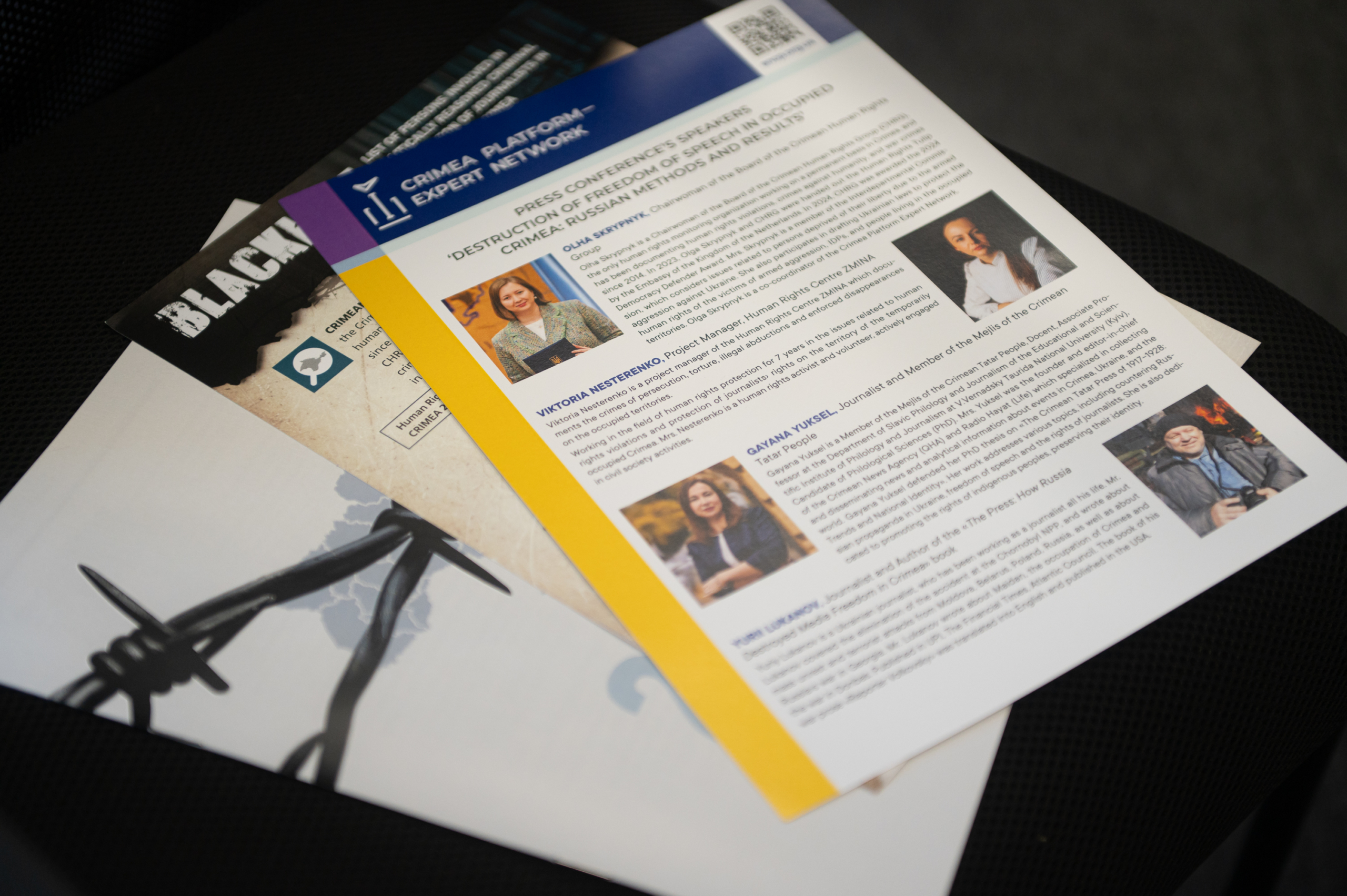
For reference: The Summit takes place in Riga, Latvia, for two days on October 23-24, 2024. In previous years, it was held in Zagreb and Prague. ZMINA representative Viktoria Nesterenko will take part in several events at the conference.
Photo credit: Valeriia Mezentseva
The project is implemented with the financial support of the Ministry of Foreign Affairs of the Czech Republic as part of the Transition Promotion Program. The views expressed in this material are those of the authors and do not reflect the official position of the Ministry of Foreign Affairs of the Czech Republic.
If you have found a spelling error, please, notify us by selecting that text and pressing Ctrl+Enter.















